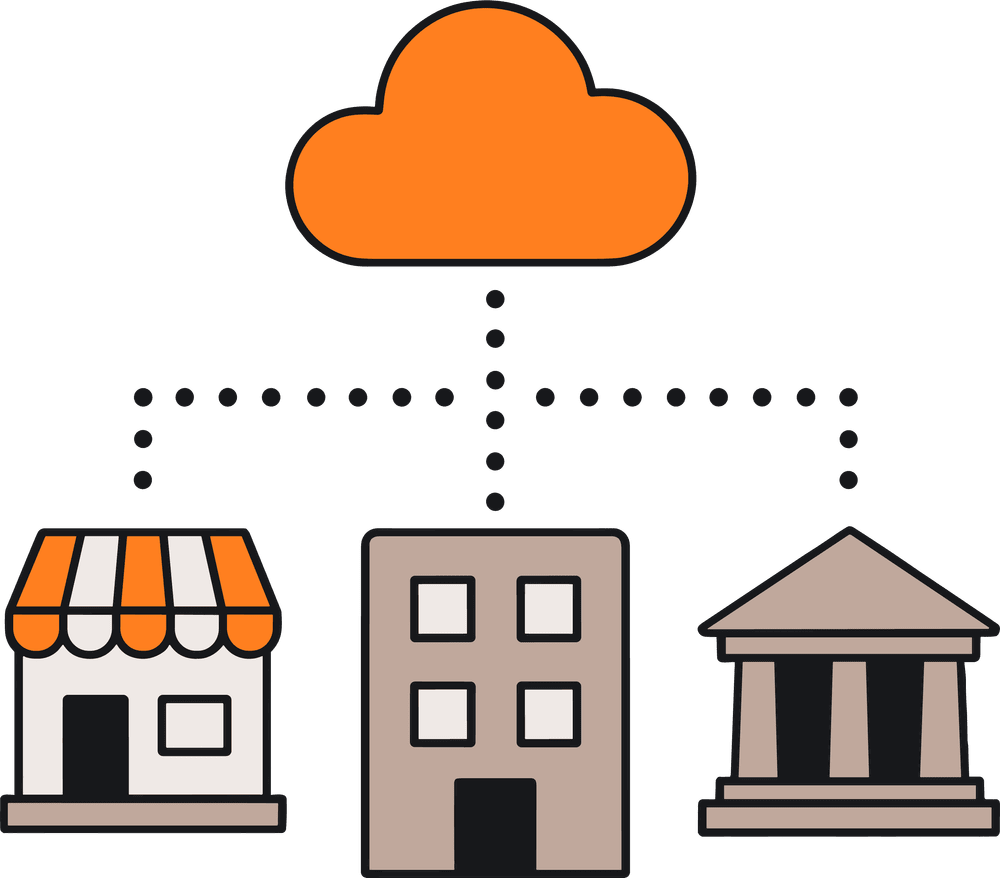
NetSuite Pricing
Oracle NetSuite ERP Pricing, Cost, and Calculator Guide
Learn about Oracle NetSuite pricing, NetSuite ERP pricing, CRM, OneWorld, SuiteCommerce, WMS, and more. Discover how much NetSuite costs, pricing models, and what affects your total NetSuite cost per year.
NetSuite Pricing Guide
About this page...
If you’re evaluating NetSuite pricing, it’s essential to understand that there’s no one-size-fits-all answer. NetSuite is a modular, cloud-based ERP platform—meaning your total NetSuite cost depends on the features, modules, user count, and business size.
At Anchor Group, we specialize in helping companies evaluate Oracle NetSuite pricing, compare options, and determine the most cost-effective configuration for their ERP needs. Whether you’re a startup, small business, or global enterprise, this guide breaks down the components of NetSuite ERP pricing and the factors that impact your investment.

Oracle NetSuite Pricing Overview
Oracle NetSuite pricing follows a subscription-based model that scales with your company’s size, complexity, and growth. Businesses pay a recurring license fee plus optional implementation, support, and customization services.
The pricing structure includes:
- Base license cost for the core ERP system
- Per-user fee based on access level (full or limited users)
- Additional module costs such as CRM, WMS, eCommerce, or OneWorld
- Implementation and support provided by certified partners like Anchor Group
This flexibility allows organizations to start small and scale as needed without overpaying for unused functionality.

NetSuite ERP Pricing Explained
NetSuite ERP pricing forms the foundation of your system and includes financials, accounting, order management, procurement, and reporting tools.
The cost varies depending on:
- Number of users
- Required features (inventory, multi-entity support, etc.)
- Customization and integration complexity
Typically, NetSuite ERP pricing starts around $999/month for the base platform, plus a per-user license. As your system grows, costs scale with modules, transactions, and subsidiaries.

NetSuite Cost and Pricing Factors
Four main areas influence the overall NetSuite cost:
- License fees for core ERP modules
- Add-on module fees such as CRM, WMS, or SuiteCommerce
- Implementation and customization costs
- Support and training
The final NetSuite price depends on your business model, data migration needs, and whether you operate domestically or globally. Small businesses often pay less initially, while enterprise deployments are more complex.

NetSuite Small Business and Startup Pricing
For smaller organizations, NetSuite small business pricing and NetSuite startup pricing offer scalable solutions that support essential financial and operational needs.
- Oracle NetSuite pricing small business typically includes basic accounting, order management, and reporting.
- Startups can begin with a lighter version and add advanced modules over time.
- Subscription tiers allow smaller firms to use enterprise-grade technology without the full enterprise cost.
This flexibility ensures that growing companies can start affordably and scale their ERP as they expand.

NetSuite CRM Pricing
The model covers lead management, opportunity tracking, forecasting, and customer service. It’s available as a standalone module or integrated into the main ERP suite.
CRM functionality is ideal for companies looking to unify sales and accounting data within one platform, improving visibility and sales performance.

NetSuite OneWorld Pricing
Applies to companies managing multiple subsidiaries, currencies, or tax jurisdictions.
It supports global operations with consolidated reporting, automated currency conversion, and multi-entity financials.
Because of its advanced capabilities, OneWorld adds to the total license cost—but it’s essential for organizations with complex, international structures.

NetSuite Accounting Pricing
Is built into the ERP’s financial management module, which includes general ledger, accounts receivable, accounts payable, and budgeting tools.
For most businesses, this serves as the foundation of their ERP, supporting accurate reporting, compliance, and automation of financial processes.

NetSuite eCommerce and SuiteCommerce Pricing
For retailers and online sellers, NetSuite eCommerce pricing (also known as NetSuite SuiteCommerce pricing) adds web storefronts, shopping carts, and real-time ERP synchronization.
The cost varies based on the number of SKUs, transactions, and design customizations, but having your eCommerce and ERP in one system eliminates data silos and third-party integration costs over time.

NetSuite WMS Pricing
Warehouse Management System (WMS) functionality is another advanced module available through NetSuite. NetSuite WMS pricing varies depending on warehouse size, automation level, and device count.
The module helps streamline picking, packing, receiving, and inventory accuracy, which often offsets its cost through improved efficiency.

Oracle NetSuite ERP Pricing vs. Oracle NetSuite Cost
While Oracle NetSuite ERP pricing refers to the software subscription and licensing costs, Oracle NetSuite cost represents your total ownership expenses—including implementation, support, and ongoing operations.
At Anchor Group, we help companies evaluate both sides of this equation—providing transparent breakdowns and long-term cost optimization.

Understanding the NetSuite Pricing Calculator
Since NetSuite is modular, many users turn to a NetSuite pricing calculator to estimate costs based on their configuration.
The calculator typically factors in:
- Number of users
- Selected modules
- Implementation services
- Additional features (CRM, WMS, eCommerce, OneWorld)
Although a calculator provides an estimate, your actual NetSuite cost per year will depend on customization, integrations, and growth.

NetSuite Pricing Model and Structure
NetSuite’s subscription-based pricing model gives organizations control over their total investment. You only pay for what you need—no bundled bloat.
The NetSuite pricing structure breaks down by:
- Core platform (ERP)
- User licenses
- Add-on modules
- Implementation and support
This approach enables accurate forecasting of your NetSuite cost per year and allows for adjustments as your business evolves.

How Much Does NetSuite Cost?
So in total...
While the exact number depends on your configuration, a typical small business implementation may range from $25,000 to $60,000 per year. At the same time, mid-market or global enterprises may exceed $150,000+ annually, depending on complexity.
Your investment includes licensing, setup, training, and support, which can be optimized with the right partner.

Why Choose Anchor Group for NetSuite Pricing Guidance
At Anchor Group, we specialize in helping clients navigate the complexities of Oracle NetSuite pricing. Our consultants provide transparent quotes, detailed comparisons between editions, and total cost of ownership (TCO) analyses to help you budget confidently.
We assist with:
- NetSuite license negotiation and optimization
- Edition comparison (Small Business, OneWorld, SuiteCommerce)
- Module and user scaling strategies
- Accurate forecasting using your data and goals
With a clear understanding of your business requirements, we ensure you get the best possible NetSuite price without unnecessary add-ons.

FAQ: NetSuite Pricing
NetSuite’s pricing is modular and subscription-based. You pay for a core ERP license, plus user access, and add-on modules (such as CRM, WMS, SuiteCommerce, and OneWorld). Your total cost depends on several factors, including the number of users, the modules you enable, your data volume, required customizations, integrations, and implementation efforts.
NetSuite does not publish a single fixed price for ERP because costs vary widely by company. Instead, NetSuite presents general guides on how ERP pricing is structured and the key factors driving cost. Prospective customers must often request a quote tailored to their needs.
While actual numbers depend on scale and complexity, a realistic first-year cost often ranges between $25,000 and $150,000+, including licensing, implementation, and support. For more complex or global deployments, costs can exceed that range. ERPResearch estimates NetSuite can cost anywhere from $40,000 in the first year up to much higher, depending on scale.
User license pricing is variable and depends on the role and access level. Some market reference sources cite starting user license costs of ~$125/month for full users under NetSuite ERP pricing models.
Yes — modules such as CRM, WMS, SuiteCommerce, and others are licensed in addition to the core ERP license. The module fees vary according to functionality, scope, and the number of users or transactions. NetSuite’s Modules Guide covers module licensing and how modules are added on top of the ERP core.